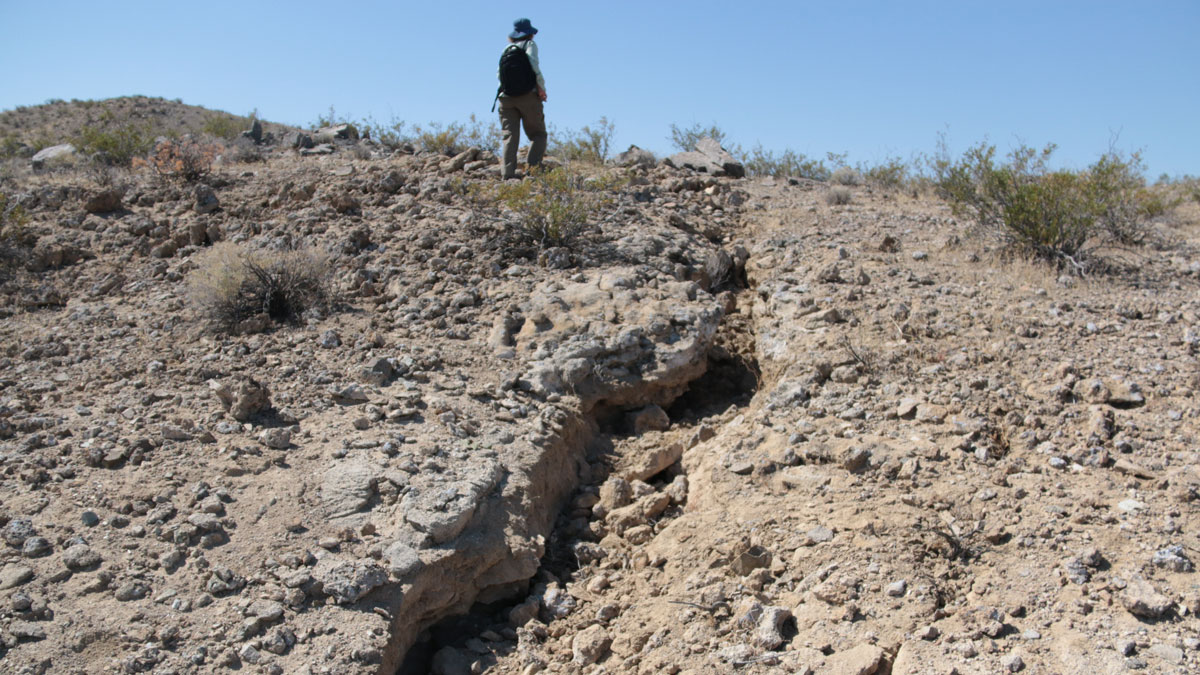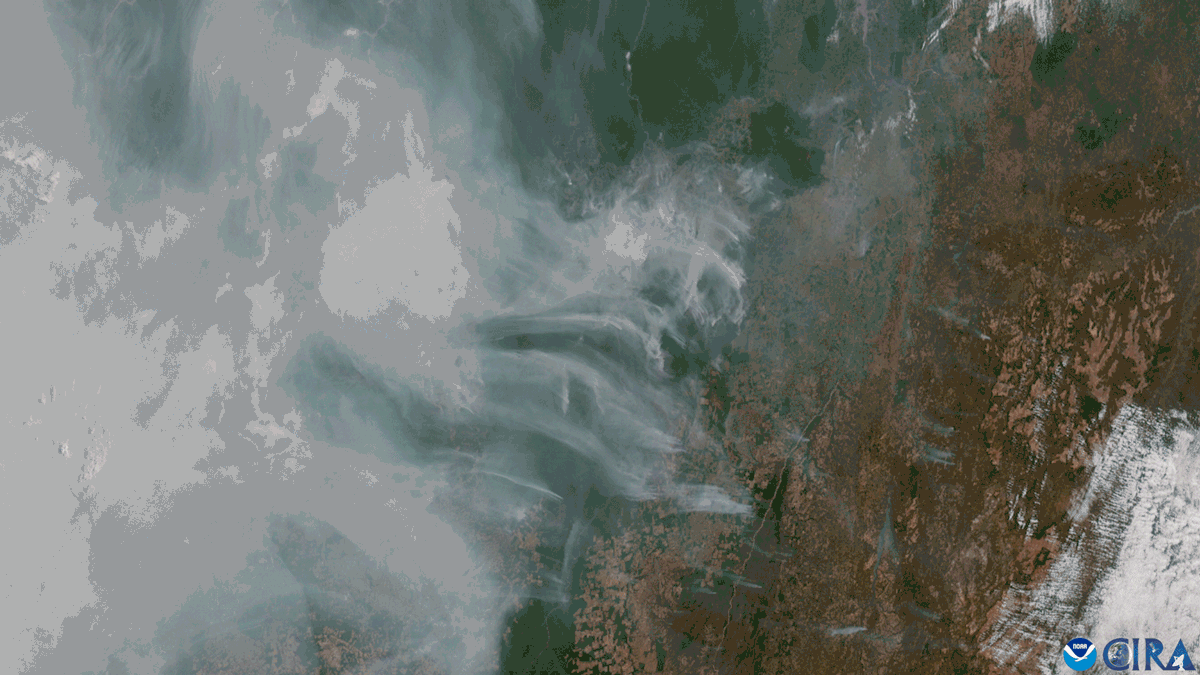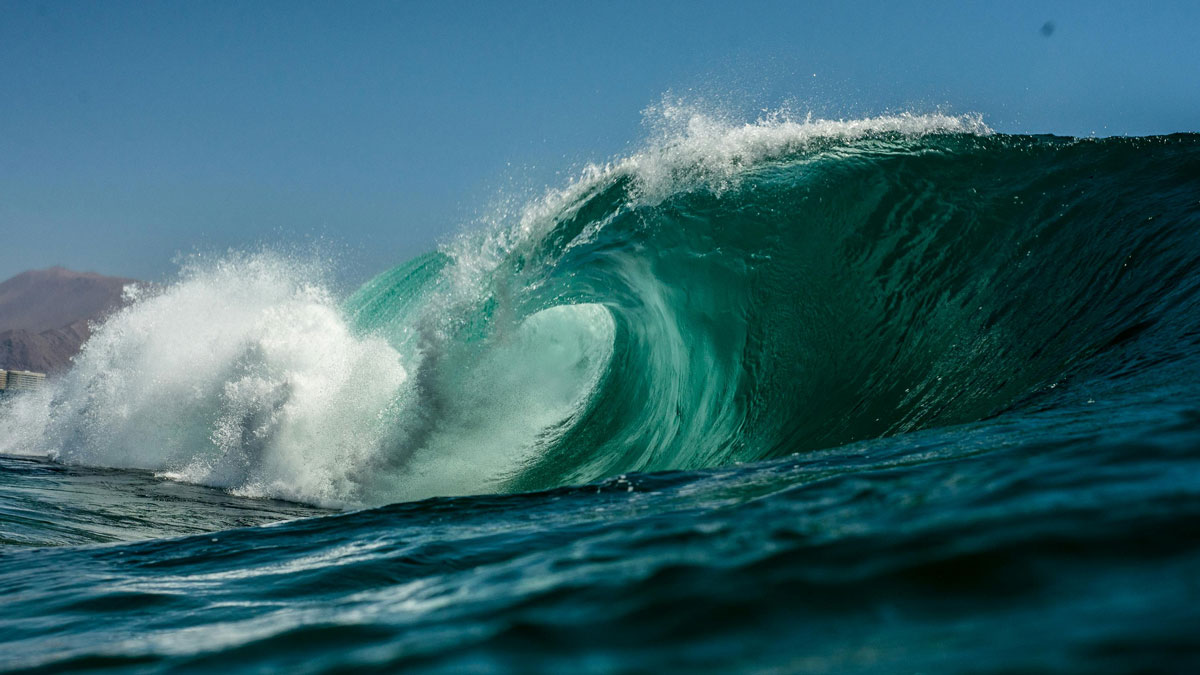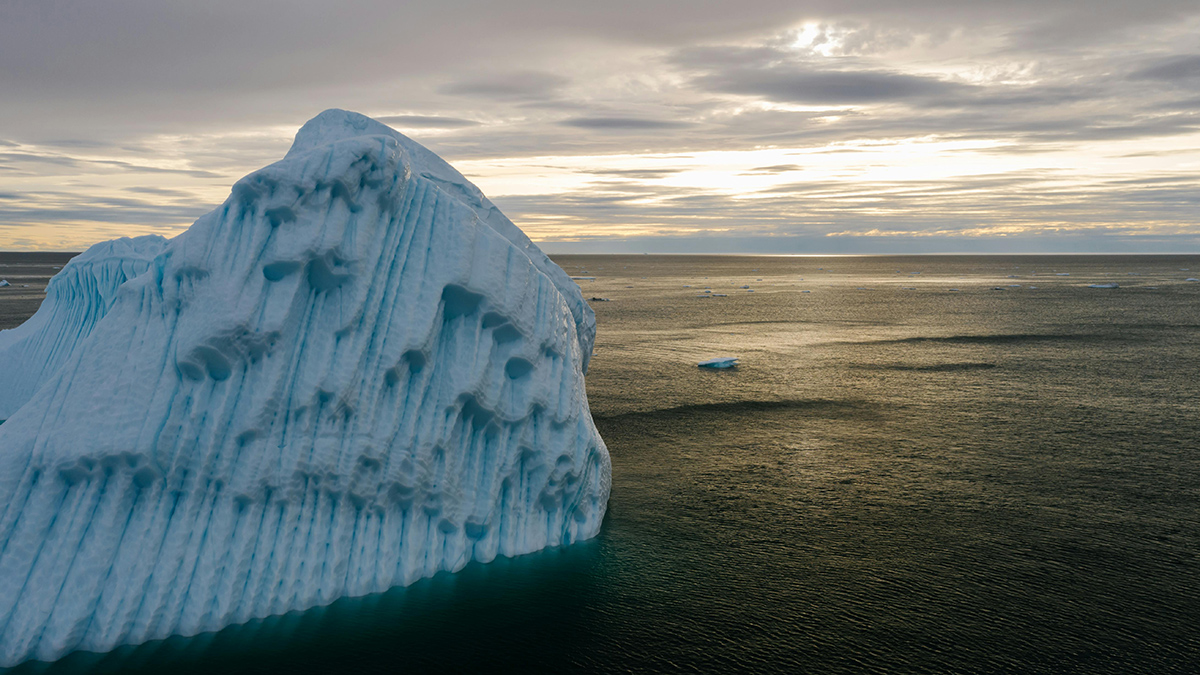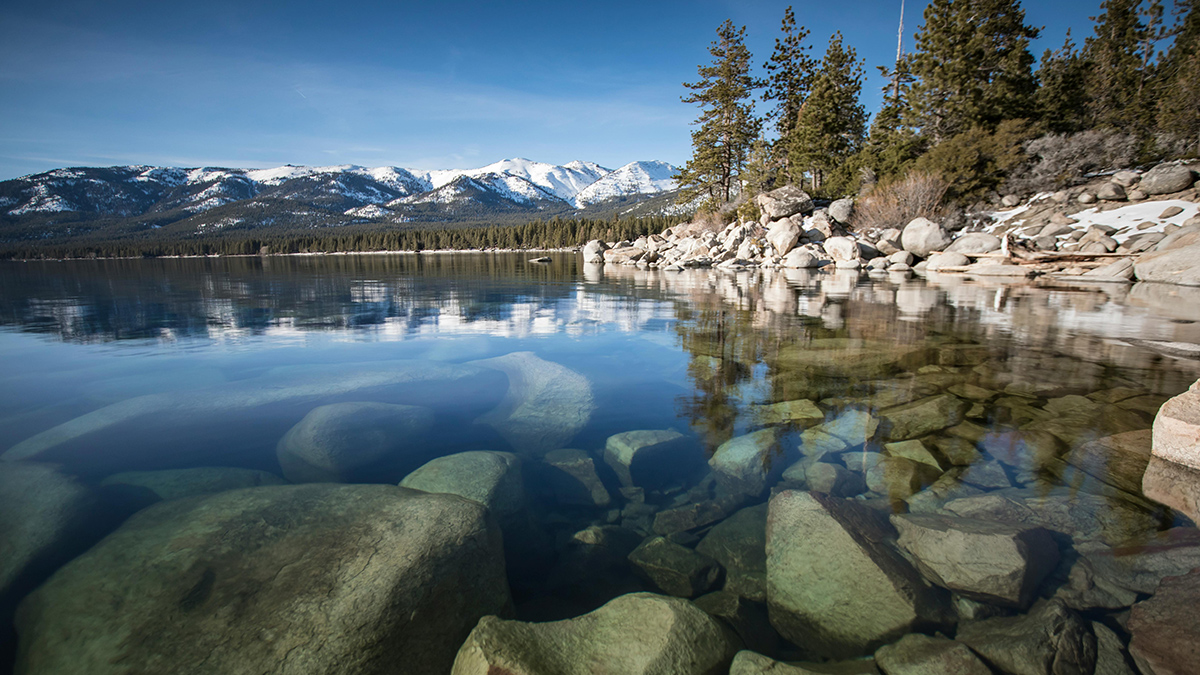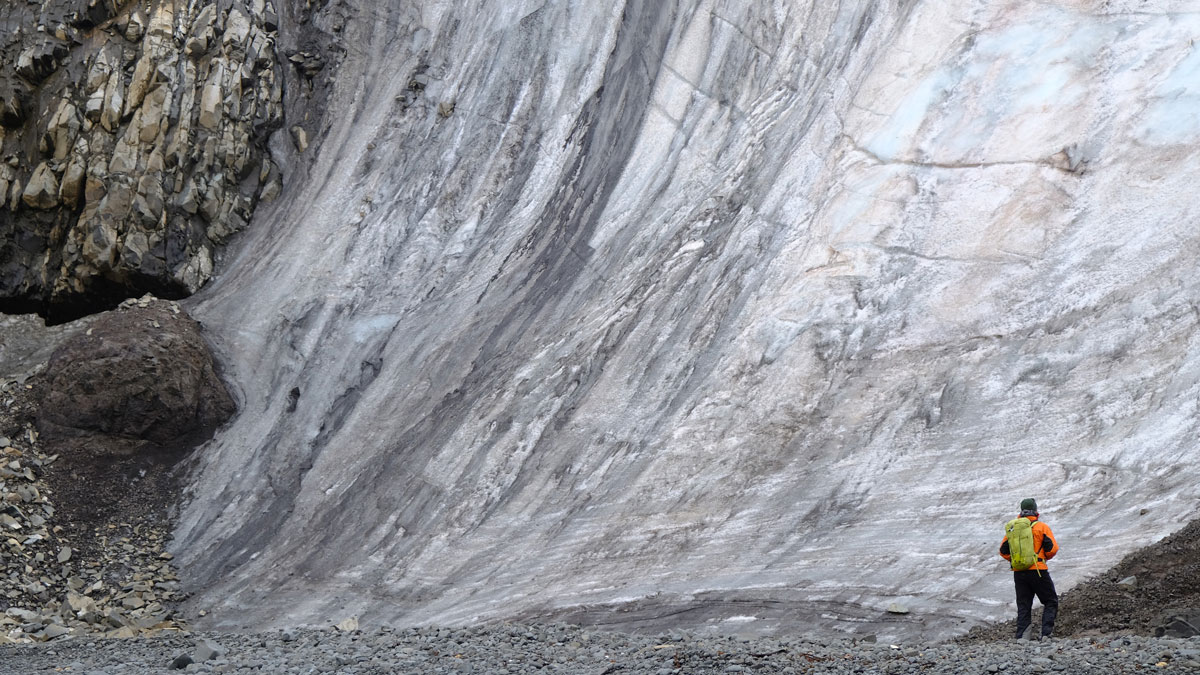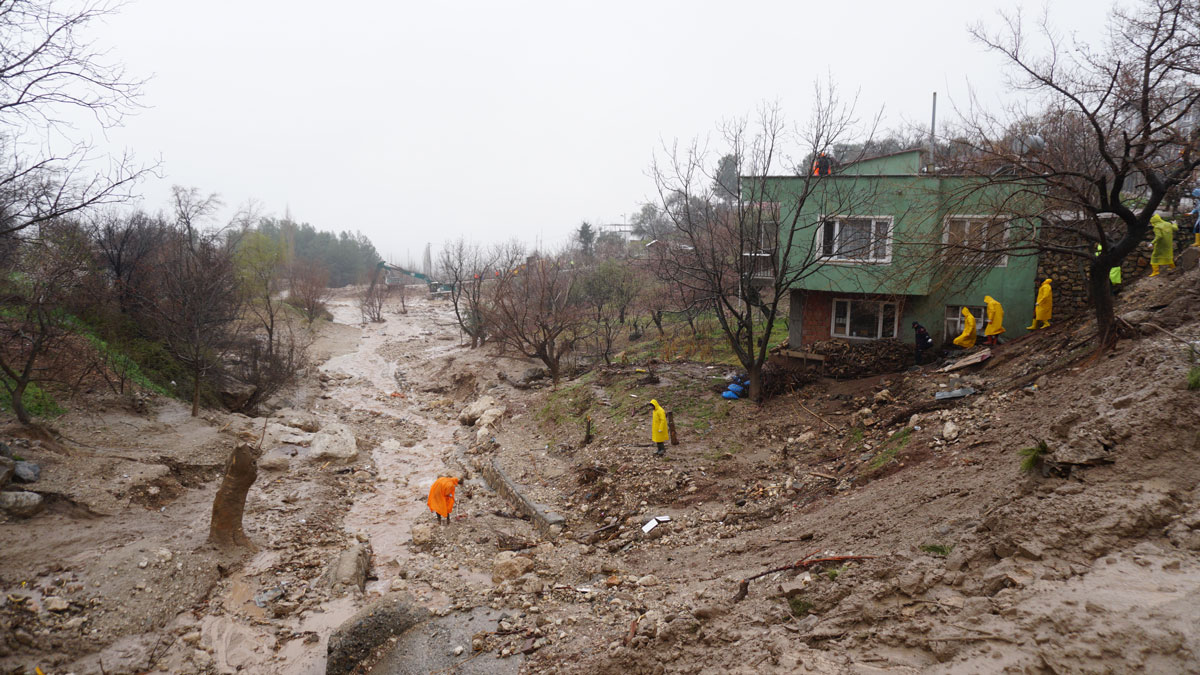Even though trees help keep children safe from the Sun, some school districts have lost 25% of their tree canopy in just 4 years.
Andrew Chapman
The Ridgecrest Earthquake Left Enduring Damage in Earth’s Deep Crust
The shallow crust has recovered since California’s 2019 quake, but damage persists at depths greater than 10 kilometers.
Fire, Not Deforestation, Is Now the Amazon’s Biggest Carbon Emitter
Forest degradation in the Amazon increased by 400% in 2024. It was largely driven by wildfires during the forest’s worst fire season in more than 20 years.
Scientists Tune In to the Ocean’s Sound Waves
A new technique detects inaudible acoustic signals from crashing waves, opening up possibilities for monitoring sea and atmospheric conditions from shore.
Cyclones Affect Heart Health for Months After They Subside
In a multicountry study, researchers found that cyclones increase the risk of heart disease–related hospitalizations for up to 6 months.
Arctic Ice Shelf Theory Challenged by Ancient Algae
Chemical signatures of marine organisms reveal that seasonal sea ice, not a massive ice shelf, persisted in the southern Arctic Ocean for 750,000 years.
Precipitation Extremes Drive Swings in Lake Tahoe’s UV Exposure
An 18-year study reveals dramatic year-to-year variations in ultraviolet radiation penetration tied to Sierra Nevada precipitation cycles.
Fallowed Fields Are Fueling California’s Dust Problem
New research shows that unplanted agricultural lands are behind most of the state’s anthropogenic dust events.
Newly Discovered Algae May Speed Melting of Antarctic Ice
Purple pigmentation in a diverse array of algae absorbs heat and creates a feedback loop responsible for 2% of total daily melting.
An Atmospheric River Exacerbated Türkiye’s 2023 Earthquake Crisis
A new study reveals how an atmospheric river led to more devastation after two earthquakes hit Türkiye and Syria, highlighting the need for better risk assessment models.


